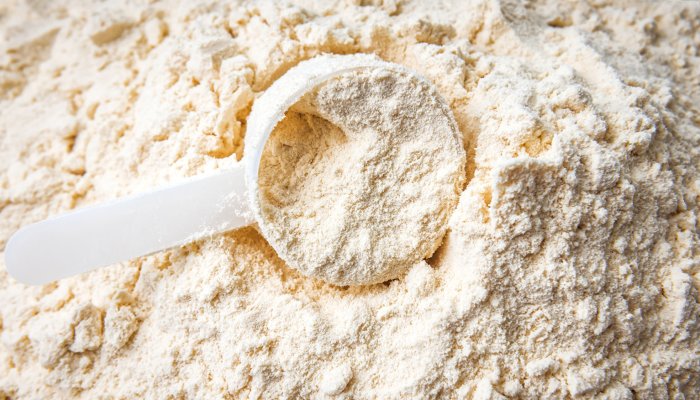

Pea protein is a rising star in the protein powder world due to its versatility and neutral taste, which allows it to blend easily into smoothies, shakes, and other recipes. Additionally, pea protein is easy to digest1, making it an excellent option for those with sensitive stomachs or digestive issues.
A plant protein, pea protein is typically made from yellow split peas2 that undergo a rigorous refinement process3 to extract their protein. It’s typically found in three forms4: pea flour, pea protein concentrate, and pea isolate.
Pea protein has a Protein Digestibility Corrected Amino Acid Score (PDCAAS)5 of 0.78 to 0.91 depending on the product, making it one of the easiest plant proteins to digest (though it’s still harder to digest than animal proteins like whey, which have a PDCAAS score of 1.0). This rate allows your body to efficiently use pea protein’s essential amino acids (EAAs) for muscle growth, repair, and recovery following workouts. In one study, participants who supplemented pea protein experienced a greater increase in muscle thickness6 compared to those taking a placebo.
“Pea protein is a complete protein, meaning it contains all nine essential amino acids (including the branched-chain amino acids leucine, isoleucine, and valine) necessary for muscle protein synthesis to occur. For this reason, pea protein is effective in building muscle7, and multiple clinical trials support this,” says Emily Werner, Ph.D., R.D., CSSD, a registered sports dietitian.
However, some people don’t consider pea protein a complete protein since it is low in some essential amino acids, like methionine. It also contains less of the amino acid leucine than whey, making it less effective at promoting muscle protein synthesis.








